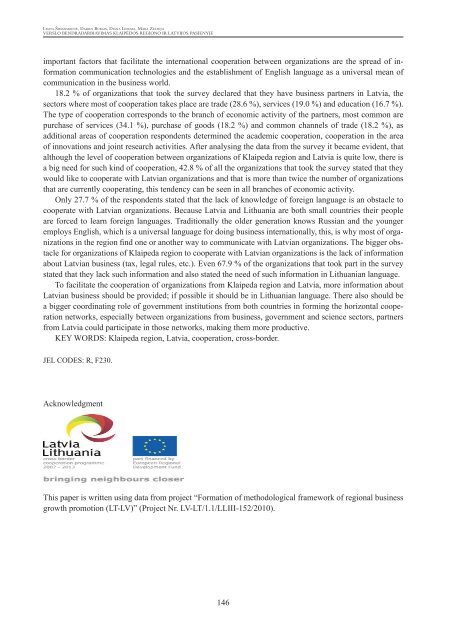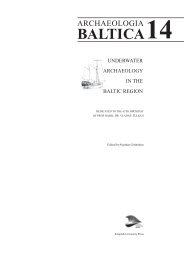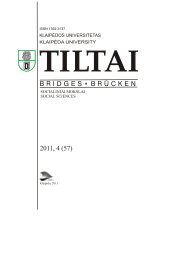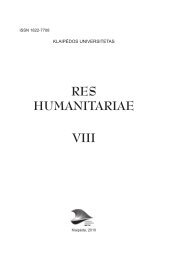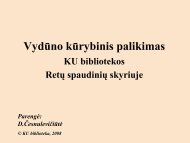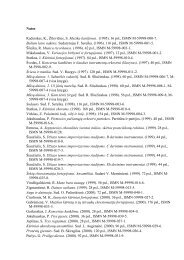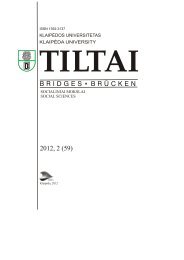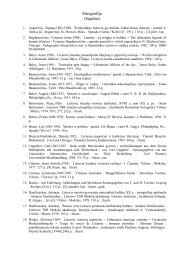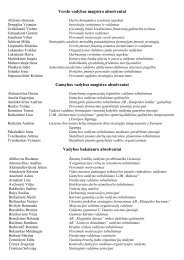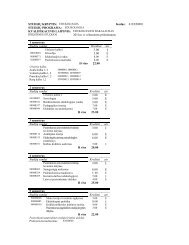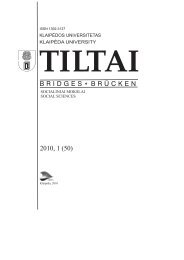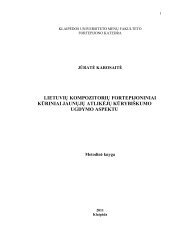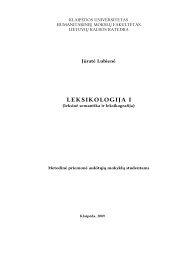Regional Formation 2012,1 - KlaipÄdos universitetas
Regional Formation 2012,1 - KlaipÄdos universitetas
Regional Formation 2012,1 - KlaipÄdos universitetas
You also want an ePaper? Increase the reach of your titles
YUMPU automatically turns print PDFs into web optimized ePapers that Google loves.
Ligita Šimanskienė, Darius Burgis, Diana LīDuma, māra ZeLtiņa<br />
Verslo bendradarbiaVimas Klaipėdos regiono ir latVijos pasienyje<br />
important factors that facilitate the international cooperation between organizations are the spread of information<br />
communication technologies and the establishment of English language as a universal mean of<br />
communication in the business world.<br />
18.2 % of organizations that took the survey declared that they have business partners in Latvia, the<br />
sectors where most of cooperation takes place are trade (28.6 %), services (19.0 %) and education (16.7 %).<br />
The type of cooperation corresponds to the branch of economic activity of the partners, most common are<br />
purchase of services (34.1 %), purchase of goods (18.2 %) and common channels of trade (18.2 %), as<br />
additional areas of cooperation respondents determined the academic cooperation, cooperation in the area<br />
of innovations and joint research activities. After analysing the data from the survey it became evident, that<br />
although the level of cooperation between organizations of Klaipeda region and Latvia is quite low, there is<br />
a big need for such kind of cooperation, 42.8 % of all the organizations that took the survey stated that they<br />
would like to cooperate with Latvian organizations and that is more than twice the number of organizations<br />
that are currently cooperating, this tendency can be seen in all branches of economic activity.<br />
only 27.7 % of the respondents stated that the lack of knowledge of foreign language is an obstacle to<br />
cooperate with Latvian organizations. Because Latvia and Lithuania are both small countries their people<br />
are forced to learn foreign languages. Traditionally the older generation knows Russian and the younger<br />
employs English, which is a universal language for doing business internationally, this, is why most of organizations<br />
in the region find one or another way to communicate with Latvian organizations. The bigger obstacle<br />
for organizations of Klaipeda region to cooperate with Latvian organizations is the lack of information<br />
about Latvian business (tax, legal rules, etc.). Even 67.9 % of the organizations that took part in the survey<br />
stated that they lack such information and also stated the need of such information in Lithuanian language.<br />
To facilitate the cooperation of organizations from Klaipeda region and Latvia, more information about<br />
Latvian business should be provided; if possible it should be in Lithuanian language. There also should be<br />
a bigger coordinating role of government institutions from both countries in forming the horizontal cooperation<br />
networks, especially between organizations from business, government and science sectors, partners<br />
from Latvia could participate in those networks, making them more productive.<br />
KEY WoRDS: Klaipeda region, Latvia, cooperation, cross-border.<br />
JEL coDES: R, f230.<br />
Acknowledgment<br />
This paper is written using data from project “formation of methodological framework of regional business<br />
growth promotion (LT-LV)” (Project Nr. LV-LT/1.1/LLIII-152/2010).<br />
146


